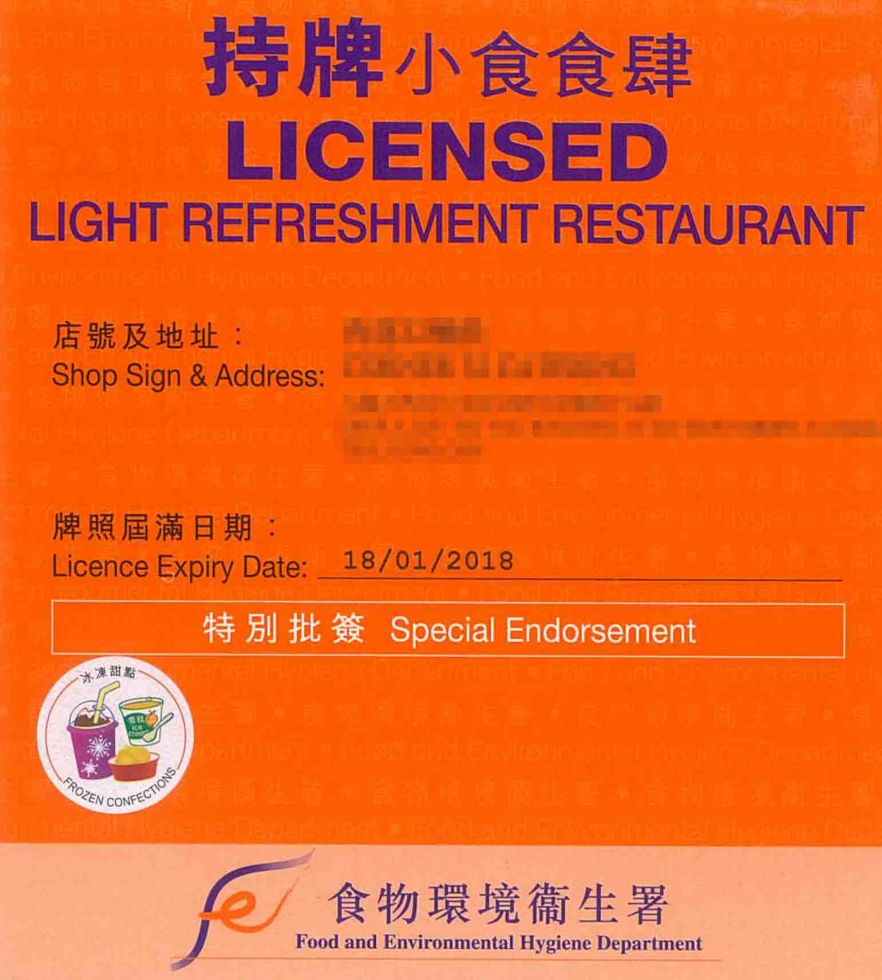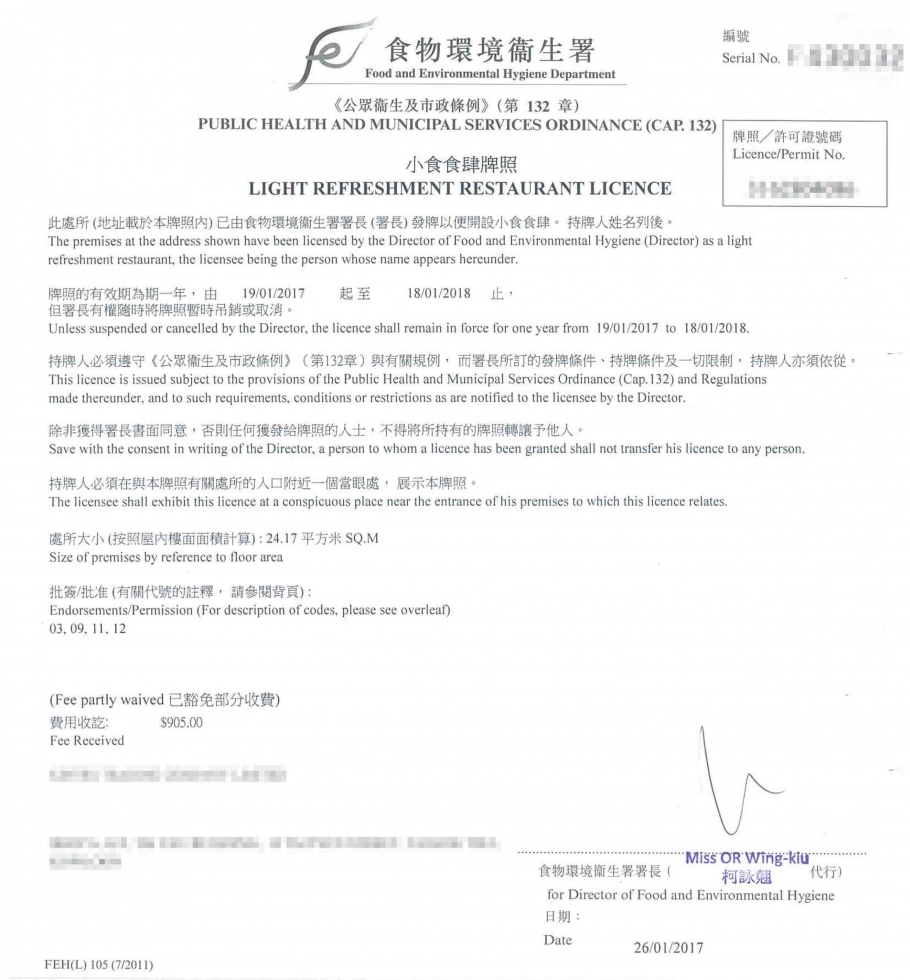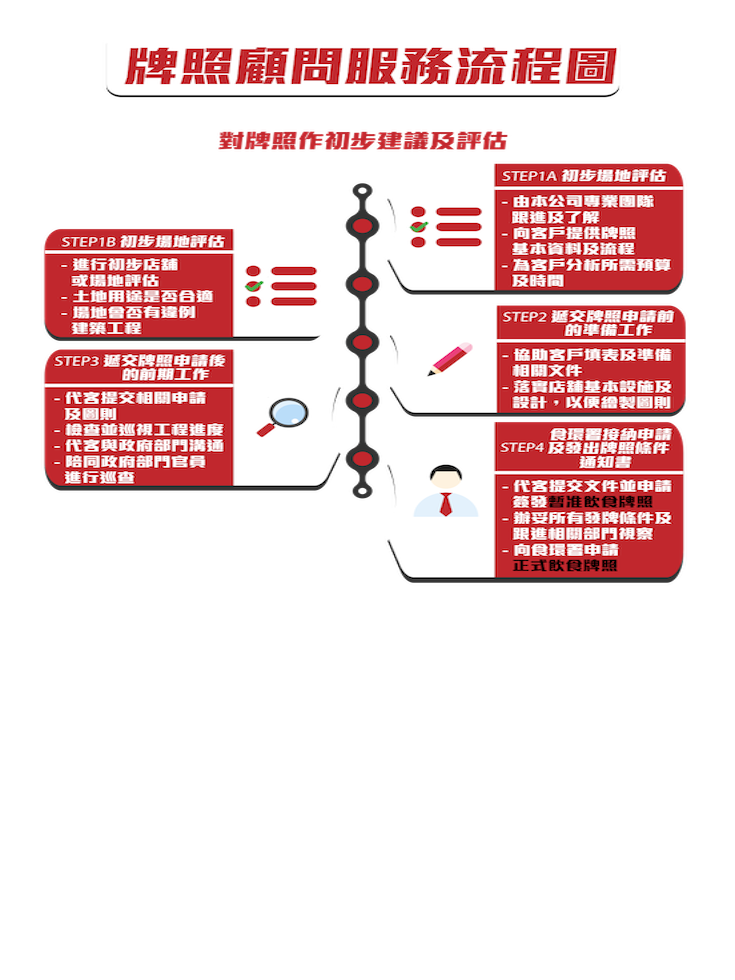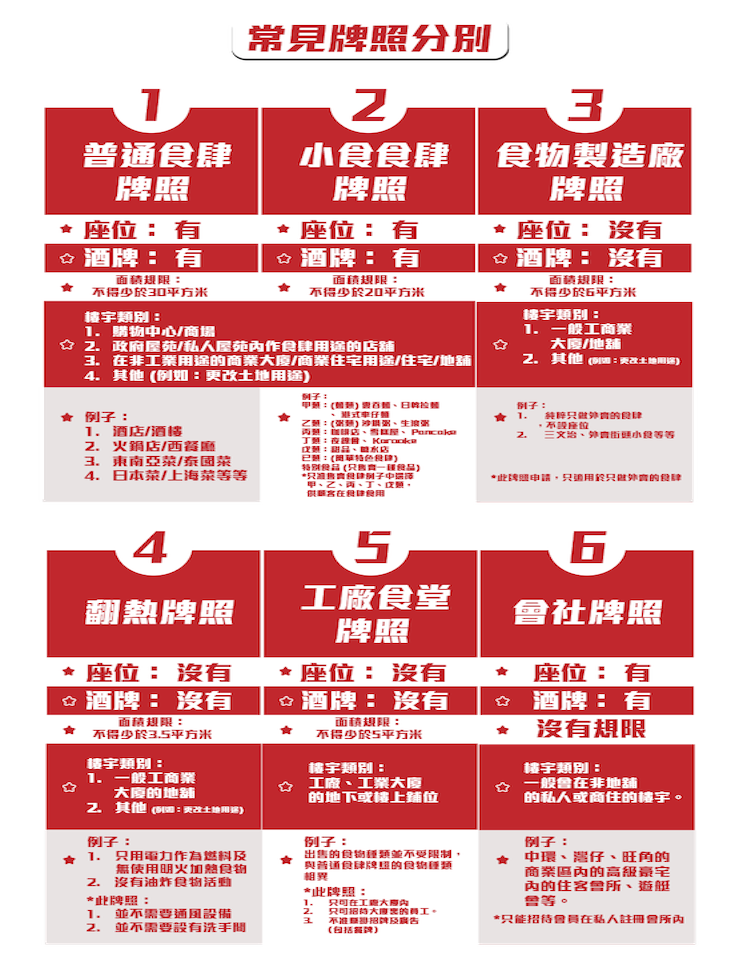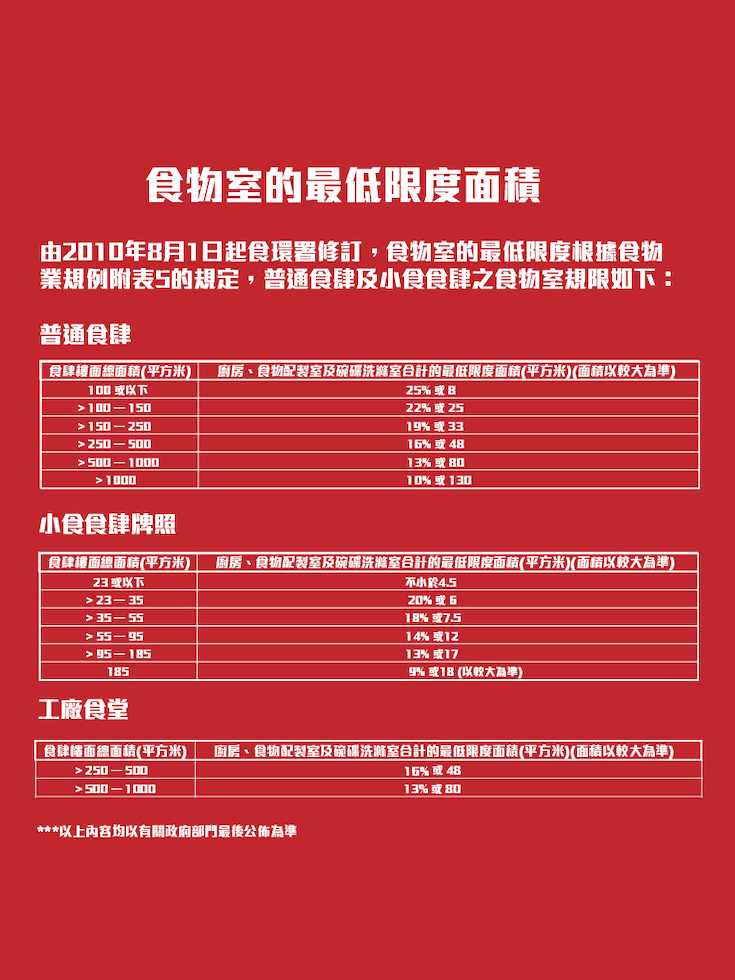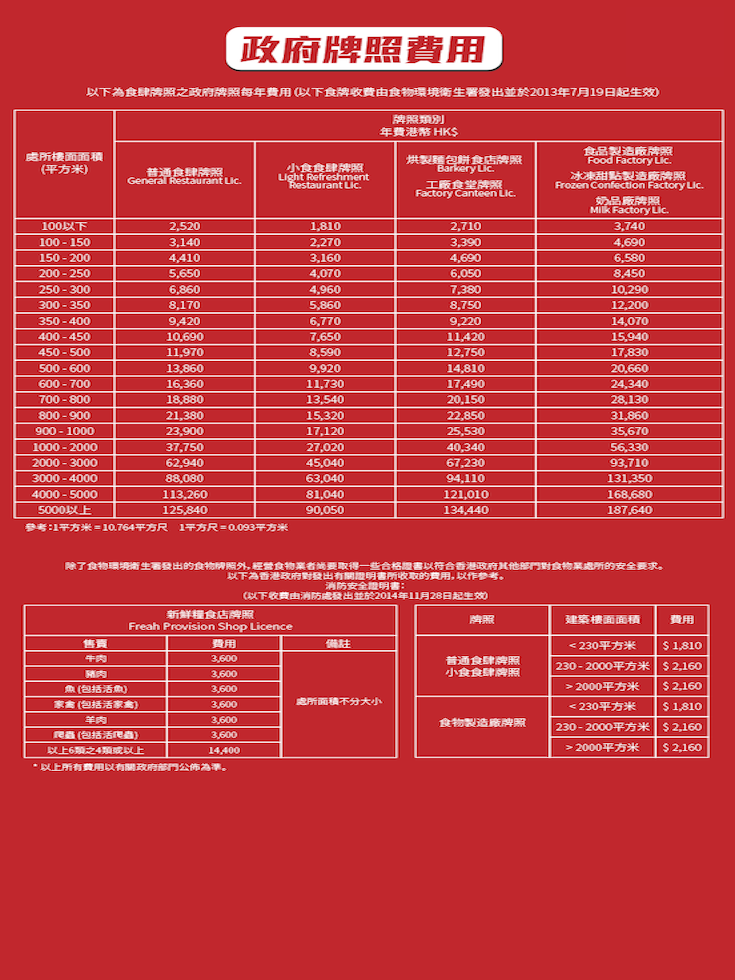According to the activities regulated by the Public Health and Municipal Services Ordinance (Cap. 132) and other relevant legislation, any person who intends to operate a restaurant must obtain a restaurant license issued by the Director of the Food and Environmental Hygiene Department (FEHD) before opening the business . The purpose of licensing restaurants is to protect public health and customer safety. Generally speaking, premises used for restaurant purposes must comply with the requirements of Buildings Department, Fire Services Department, Food and Environmental Hygiene Department, Lands Department and Planning Department in terms of building safety (including absence of unauthorized building works), fire protection, ventilation facilities and hygiene. As well as compliance with the conditions of the government lease and the statutory regulations. To facilitate the opening of food businesses as soon as possible, the FEHD implements a provisional license system to issue provisional food business licenses to premises that have met the basic requirements for hygiene, building safety and fire safety. A provisional license is valid for six months. During this period, the licensee must fulfill all outstanding requirements before being issued a full license. Read more about applying for a catering license Chinese version / English version
We consider that first-time entrepreneurs will feel troubled and troubled when applying for restaurant licenses, so we have special services for applying for various types of catering business licenses, transferring various types of licenses or permits, and handling various types of application for licenses. Certificate, our company specially arranges professional licensing consultants to answer all the questions about applying for restaurant licenses for customers.
What not to do:
the selection of premises located in industrial buildings;
the selection of premises located on the upper floors designated for residential purposes;
Selection of premises located at or below basement level 4;
selection of premises located in areas designated for emergency use;
Choose premises directly below a registered school, child care center or residential care home to avoid posing a fire threat to such facilities;
Select an upper unit of a building with only one staircase;
plan to use areas with manholes or manure/sewage and stormwater pipes for kitchens, food preparation rooms and scullery;
Commencement of repairs or renovations to the premises before the application review panel approves the license application;
Unnecessary amendments to proposed layout plans that have been approved by the Application Vetting Panel. Any changes will delay the processing of applications;
commenced business before a license has been issued by the licensing authority;
Ignore the requirements of other government departments such as Buildings Department, Fire Services Department, Electrical and Mechanical Services Department and Environmental Protection Department (even if a license has been issued by the licensing authority).
Things to do:
Select the premises designated for operating restaurant business according to the occupancy certificate and the government land lease;
Select premises free from unauthorized building works (refer to approved building plans);
It is best to choose premises with a salable floor area of not less than 30 square meters for general restaurants and premises with a salable floor area of not less than 20 square meters for snack restaurants;
Selection of premises with adequate load capacity on the floor;
Choose premises with fire escapes;
Choose premises with piped water supply, flush toilets and proper drainage;
Select premises that can be equipped with separate ventilation systems for kitchens, toilets and seating areas;
Send three copies of the design plans of the premises and the design plans of the air-conditioning/ventilation system for which the restaurant license is to be applied, together with the application form, to the relevant Licensing Section;
Design drawings should be drawn in decimal units in proportion (not less than 1:100);
Refer to the regulations to be complied with in respect of drainage, air pollution prevention and noise control in relevant ordinances;
An Authorized Person or a Registered Structural Engineer should be employed if major alterations or additions are to be carried out, or if one of the above requirements is unfamiliar.

